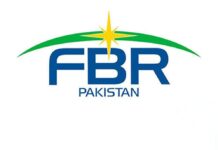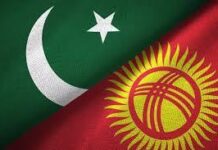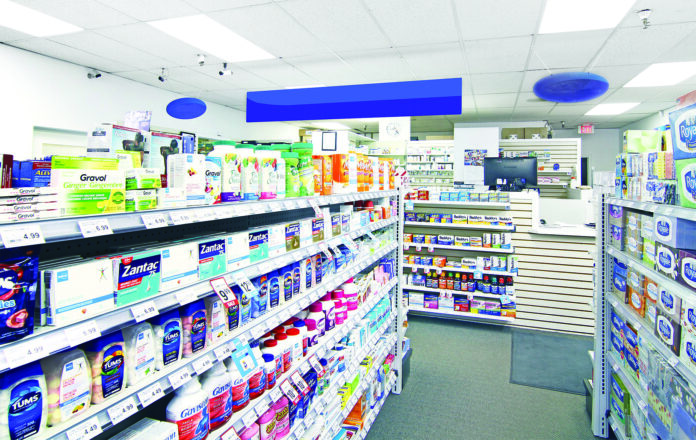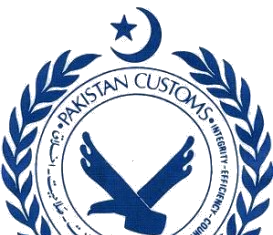LAHORE: On 5 April, the regulator and pharmaceutical manufacturers decided to not raise medicine prices across the board and discuss the increase on a molecule-to-molecule basis. According to the Pakistan Pharmaceutical Manufacturers Association (PPMA) officials, talks have been occurring with the Drug Regulatory Authority of Pakistan (DRAP) to negotiate the price hike.
Despite the ongoing negotiations, no conclusion has been reached due to delaying tactics adopted by the DRAP and the government, according to the PPMA Chairman Syed Farooq Bukhari. He added, “The DRAP and the government are playing back and forth, and these delaying tactics have resulted in massive suffering for the industry and people. Possibilities of a positive outcome from the talks seem slim.”
An official of the Ministry of National Health Services (NHS) confirmed that meetings had been held with the manufacturers. However, they refused to comment further until an agreement was reached.
A Background
Previously, the COVID-19 pandemic caused an exponential increase in the prices of pharmaceutical ingredients including the raw materials used in drug manufacturing in the international markets. This conflated with skyrocketing inflation and rupee devaluation.
Consequently, the Consumer Price Index (CPI) rose by 27.6% in January 2023 as compared to its amount in the same period in 2022. In recent months, the rupee hit an all-time low at 286 rupees against $1, which made it one of Asia’s weakest currencies.
According to sources, “80% of the raw material for the manufacturing of pharmaceuticals is imported. The persistent exchange rate fluctuations has created a situation wherein the pharmaceutical companies can’t sustain their operations in Pakistan. This is compounded with the imposition of duties and tariffs on imported raw material.”
“Inflationary Adjustments” in Medical Prices
Earlier in February, 70 pharmaceutical companies wrote a letter urging the government to increase the prices of medicines in Pakistan due to the rising inflation and significant rupee depreciation in the country. The letters were addressed to the federal minister and secretary of Ministry of Health Services, Regulation and Coordination and CEO of Drug Regulatory Authority of Pakistan (DRAP). According to the letter, the medicinal companies called the government to adjust the maximum retail prices of medicines according to inflation. They also indicated that failure to make such adjustments could lead to the collapse of the domestic pharmaceutical industry in Pakistan.
The Chairman of the Pakistan Pharmaceutical Manufacturers Association defended the demand for an “inflationary price adjustment,” as he perceived this as necessary given the increasing inflation and dollar-rupee disparity.
“The (local) pharmaceutical industry is on the verge of collapse because of no corresponding adjustment in pricing despite a 60pc increase in the materials’ cost in recent years, “ he added.
“When we demanded a 38pc raise, a dollar was Rs235. And now it’s Rs286, which means even this 38pc increase will not be enough,” said Bukhari. “However, we are still open to any government offer in this regard.”
If the government does not bow to the manufacturers’ “logical” demand, he warned, pharmaceutical companies would be compelled to shut down their units, risking more than 1 million jobs.
According to Bukhari, a total of 1300 local brands communicated to the government that it was impossible for them to continue their business at the existing cost mechanism.
Based on the amalgamation of these factors, the pharmaceutical industry demanded a 38% increase. However, the government rejected the demand. As a result, pharmaceutical companies either halted their manufacturing or turned to limited-scale production of scores of essential and non-essential medicines.
The Government’s Say
Sajid Shah, the Health Ministry spokesperson said that the government was fully cognisant of the situation and would make decisions bearing in mind the interests of the masses and the pharmaceutical industry.
He told Anadolu, “The ministry and the regulatory authorities understand the problems the pharmaceutical industry is facing due to the current economic situation, especially the dollar’s appreciation. But, simultaneously, we have to protest the interests of 220 million [people] as well.”
The Pakistan Medical Association (PMA), a nationwide body of health professionals, was against the idea of inflating prices. However, it acknowledged the problems that the pharmaceutical industry faced.
“Some of their points are valid and we fully acknowledge them. But the PMA is a patient-friendly body, and it cannot support an increase in the prices of the drugs, considering the ongoing economic conditions of the masses,” PMA President Dr Usman Mako, told Anadolu.
“We suggest that instead of increasing prices, the government and the pharmaceutical industry together share the burden of inflation and rupee devaluation,” he said.
Dangers of a ‘National Health Emergency’
As the government failed to make inflationary adjustments in medicine prices, importers had stopped or drastically reduced the imports of about 100 crucial medicines related to general anesthesia, plasma-derived products, vaccines, oncology products, and biological products, causing a dearth of medicines across the country.
Abdul Samad, an office-bearer of the Pakistan Chemist and Drugs Association informed Anadolu, “Most of the importers are nowadays importing a minimum quantity of dozens of essential and non-essential medicines just to keep their licenses intact. Otherwise, it’s no longer a profitable business for them due to a huge devaluation of the rupee against the dollar.”
In fact, Eli Lilly, the manufacturer of Humalog medical insulin used to treat diabetes has already closed its operations in Pakistan, as the pharmaceutical industry struggles to survive amidst the increasing product costs. The exodus of multinational pharmaceutical companies has accelerated in recent years. In July 2022, Sanofi Aventis Pakistan limited also exited, sellings its plants to local companies.
The consequential unavailability of medicines could inevitably trigger a national health emergency.
Due to the absence of medicines in the market, patients are already relying on smuggled drugs. Potential counterfeit drugs have also become widely available in stores.
Recent Developments
Previously, the matter was to be placed for discussion during the meeting of the Economic Coordination Committee (ECC) of the cabinet on March 27, but it was deferred as DRAP was unable to brief the committee due to a lack of preparation. Therefore, the ECC had directed DRAP to prepare the case again and address the issue with representatives from the pharmaceutical industry.
A PPMA representative, Arshad Mehmood informed Dawn that during the meetings, DRAP accepted that the production cost of the industry had risen due to the rupee devaluation to around Rs 300 against the US dollar. He added, “however, we have been told to negotiate the price hike on a molecule-to-molecule basis rather than across the board. Now we are telling DRAP which molecules prices have increased and become unviable to produce.”
























Being a long time veteran of pharma industry, I appreciate the content. The article is balanced and covers views from all sides without taking sides. A very nice presentation.